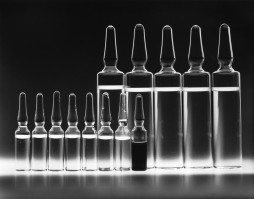
Researchers at the Francis Crick Institute have found a new way to prevent some tumours from repairing their own DNA, a function that is essential for cancer cell survival.
This discovery could lead to much needed new treatments for certain types of the disease.
In their study, published in Molecular Cell, the researchers showed that blocking an enzyme called ALC1 in certain human cancer cells in the lab caused the cells to die.
It has emerged that many cancers lose specific DNA repair processes.
As a consequence, these cancers become critically dependent on backup DNA repair pathways, which present an 'Achilles heel' that can be targeted to kill cancer cells.
Cancers that lack homologous recombination (HR), a key pathway involved in DNA repair, including some breast and ovarian cancers, can be selectively killed by PARP inhibitors. However, in about half of cases, people do not respond to these drugs and of those who do, many will eventually develop resistance.
In the search for urgently needed new drug targets to exploit DNA repair deficiencies, the team studied the effect of removing ALC1, an enzyme which plays an important role in repair of damaged DNA bases.
Unexpectedly, cells lacking ALC1 were found to be exquisitely sensitive to PARP inhibitor treatment.
Removing ALC1 also conferred synthetic lethality in HR deficient cancers.The researchers also found that HRD cancer patients with higher levels of ALC1 in their tumours were predicted to be less likely to survive.
Simon Boulton, senior author and group leader of the DSB Repair Metabolism Laboratory at the Crick says, "This work provides strong evidence for developing new drugs that block the ALC1 enzyme.
If shown to be effective in further studies, these drugs could be used alone or in combination with existing PARP inhibitors to target HRD cancers."
To understand why this enzyme has this particular effect, the team also analysed the genomes of human cancer cells where ALC1 had been removed.
They observed that without this enzyme, DNA gaps accumulated in the cancer cells, which are normally repaired by HR.
Graeme Hewitt, author and postdoc in the DSB Repair Metabolism Laboratory at the Crick says, "Many different types of cancer have weaknesses in their ability to repair DNA that could be targeted with new treatments."
"Not only have we shown that inhibiting ALC1 effectively leads to cancer cell death, we have also found out the detailed mechanism behind this. Our increased understanding of this enzyme could help in the development of drugs which stop it working."
Source: THE FRANCIS CRICK INSTITUTE